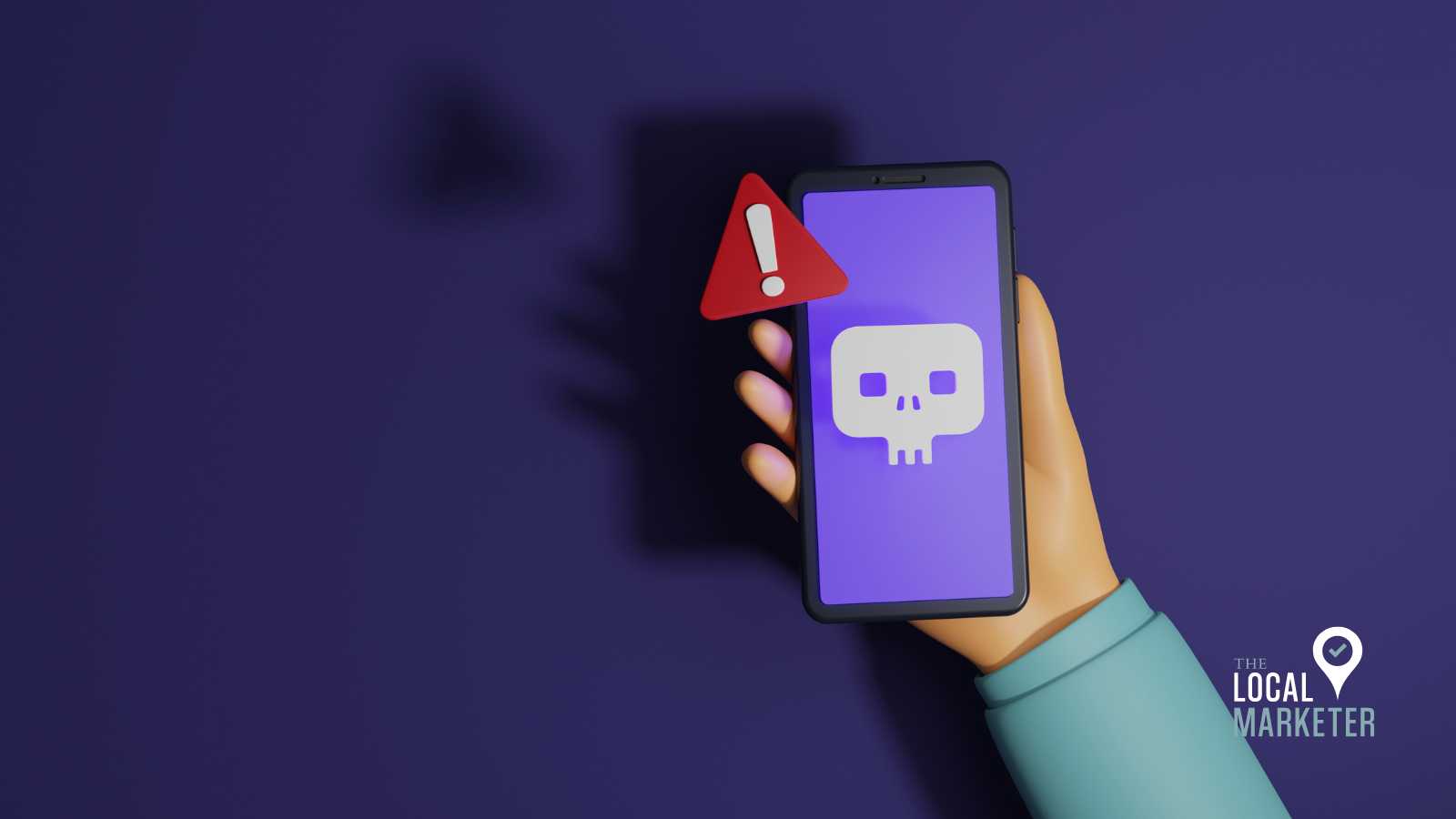How to Avoid Digital Marketing Scams (with examples)
In this day and age, digital marketing isn’t just an option, it’s a necessity. And with consumers expecting an easy-to-use online experience, it makes sense that businesses that expand digitally do better.
And with the constant competition to get more visitors online, there is no shortage of online marketing scams that any given company can fall into.
Here’s what you should know about scams you could encounter, how best to avoid them, and why reputable SEOs never promise guaranteed rankings.
WARNING! The screenshots below are real and may cause anxiety if you have fallen victim to one of them. Proceed with caution!
If you’ve made the mistake of using a service like the ones mentioned below, take a moment to breathe, and then cancel the service. Limiting the damage done by these digital marketing scams can be difficult, and stopping them immediately is always the first step.
Example 1: Buying Fake Engagement

Marketing campaigns often place significant emphasis on engagement, particularly on social media. However, it is crucial never to pay for non-organic engagement. If you are looking to boost your social media presence, avoid purchasing likes, follows, comments, or reviews from freelance digital marketers or agencies.
Beware of individuals or organizations promising 10,000 followers or a specific number of comments on your blog in exchange for money. The truth is, the comments or followers provided by these scammers will not deliver the promised results.
While social media can be a valuable tool for connecting with your audience, it is essential to reach genuine followers. Simply obtaining an extra 500 Facebook or Instagram likes will hold no significance if you are not reaching your target audience.
Instead, focus on investing in your real followers. Dedicate your efforts to providing valuable content to your existing 1, 100, or 1000 followers. Investing in genuine followers is far more beneficial than investing in fake ones.
Many businesses fall victim to the scam of faking engagement because they believe any engagement is good engagement. However, this is simply not true.
Example 2: Guaranteed Fast SEO Results

Marketers promising to skyrocket your SEO and guaranteeing you the top spot on Google search within a few weeks? That’s a major warning sign! ????
Legitimate SEO experts know that it doesn’t work that way. While it can be frustrating to wait, beware of any digital marketing scams that claim to deliver lightning-fast SEO results.
Instead, focus on improving your website. Quality SEO takes time and involves performing technical tasks to enhance your site’s health, which eventually leads to visibility on Google. This process includes resolving technical issues, creating valuable content, enhancing the user experience, and promoting your website. It’s not an instant fix.
Reputable SEO services will set realistic expectations and prepare you for the long-term game.
Example 3: Suspicious Client List

If an agency claims to have an extensive list of impressive clients, it is possible that they may not be legitimate. In my previous experience in IT, a commonly used phrase was “Trust but verify.” It means that although the agency might be telling the truth, it is important to verify their claims.
There are digital marketers and agencies who engage in deceptive practices by fabricating their client lists to appear more credible and experienced. By doing so, they can attract clients they wouldn’t otherwise have.
It is crucial to exercise caution and verify the information provided by such agencies.
Example 4: Super Cheap Pricing
One common scam is encountering prices that appear too good to be true. Engaging in a race to the bottom for pricing never leads to success.
When the prices you come across don’t align with your expectations, it’s important to verify them. Take the time to research what other digital marketers in your area are charging.
Providers who offer low-quality services often attract customers with cheap prices. However, they frequently fail to deliver on their promises. Unfortunately, pricing in this industry varies greatly due to constant changes.
Now that you are aware of what to watch out for, let’s explore how to avoid falling victim to these scams.

How to Avoid Digital Marketing Scams
Like many things in life, you cannot just avoid a bad practice, you have to replace with with a good practice in order to prevent even being tempted. Here are 5 ways to avoid falling into these scams.
- Increase Engagement with Valuable and Shareable Content
- Instead of faking engagement, invest in organic engagement by creating share-able content that adds value. When you get organic engagement with your customers, you’re able to reach them in a meaningful way.
- They comment on and like posts that interest them, and you’ll be able to continue that cycle. Posting that content on social media, or to your Google My Business listing, are some of the ways that you can spark organic engagement in and build that community.
- Invest in Growing Organic Traffic
- According to a 2019 study by BrightEdge, 51 percent of all website traffic comes from organic search with 32.5 percent being the average traffic share the first Google organic search result gets.
- SEO is an acronym you’ll probably get tired of hearing, but it’s so important to optimize your website, if you want your consumers to be able to find you.
- That said, SEO is generally a slow process that can take time for you to see results. In fact, it can sometimes take 6 months or longer.
- Don’t give up though. While it can be frustrating, your work will pay off.
- Do Your Homework
- Sometimes the information won’t be available, but when it is, you want to make sure that you know the agency that you are working with.
- Don’t hire just anyone. Talk to them about the scope and deliverables you can expect to see and ask about some of their clients.
- If you do talk to previous clients, remember those clients may not have a similar situation to your business. Despite the many benefits of SEO, the results they see may not be the results you will see, both good or bad.
- Vet Your Marketing Agency
- This may sound like something your parents do, but make sure you vet your potential marketing agency if you’re worried about anything happening behind the scenes.
- Just like with their client list, and concerns about outsourcing, this can all be alleviated by just asking a few questions.
- Double checking with the marketing agency and avoiding the ones that your gut tells you to skip are the best way to go.
- If It Sounds Too Good To Be True, It Probably Is
- As mentioned above, the industry is continually changing. That said, if you’re looking at a price, and it looks unbelievable, make sure you check again.
- The good rule of thumb ???????? is, “If it sounds too good to be true, it probably is.”
- Don’t trust the number someone is quoting you just because you don’t know. Get second and third opinions so that you know that you’re getting a good price for quality work.

Conclusion
Research before committing: Before investing your time, money, or resources in any digital marketing campaign or service, thoroughly research the company or individual you are considering working with. Look for reviews, testimonials, and case studies from previous clients to ensure their credibility. Don’t hesitate to ask for references or proof of past successes.







